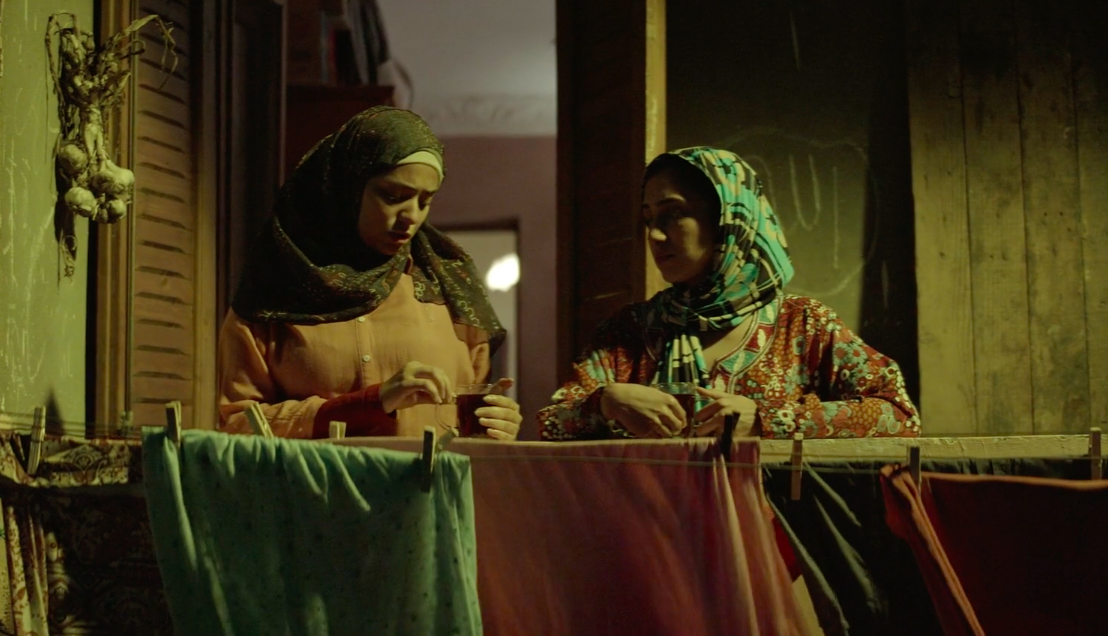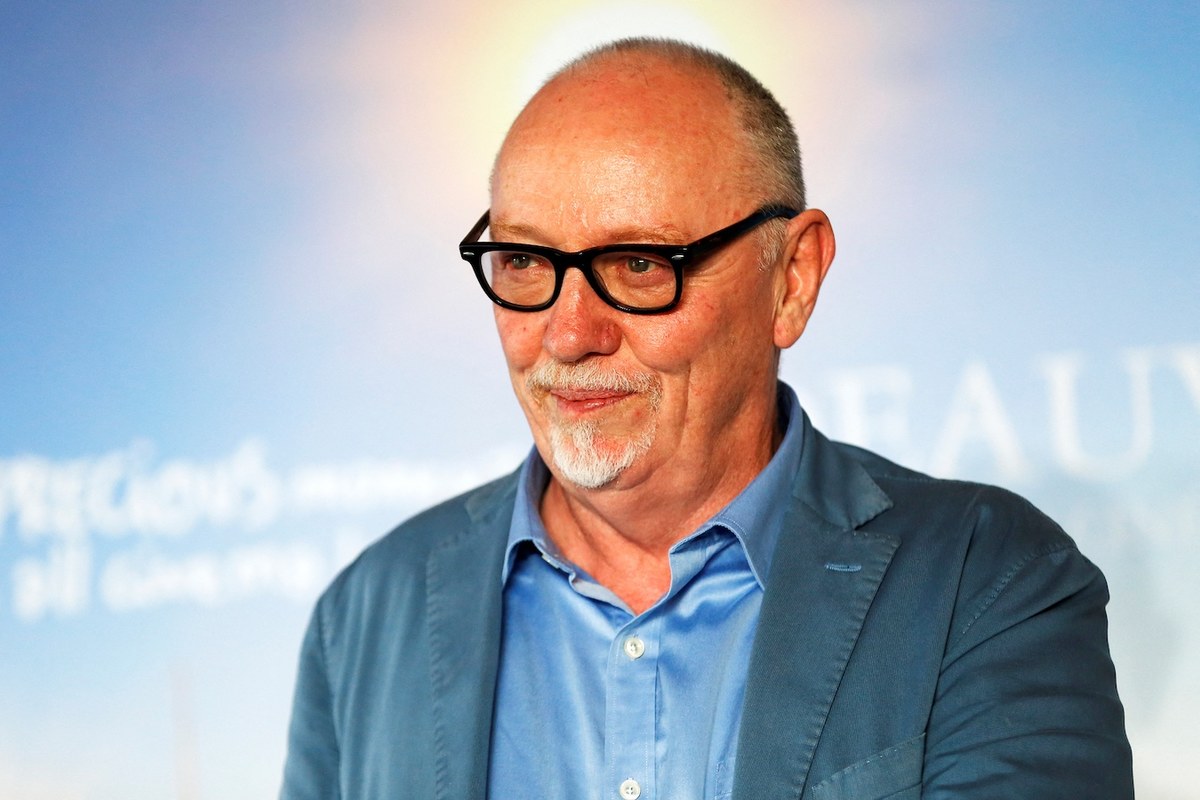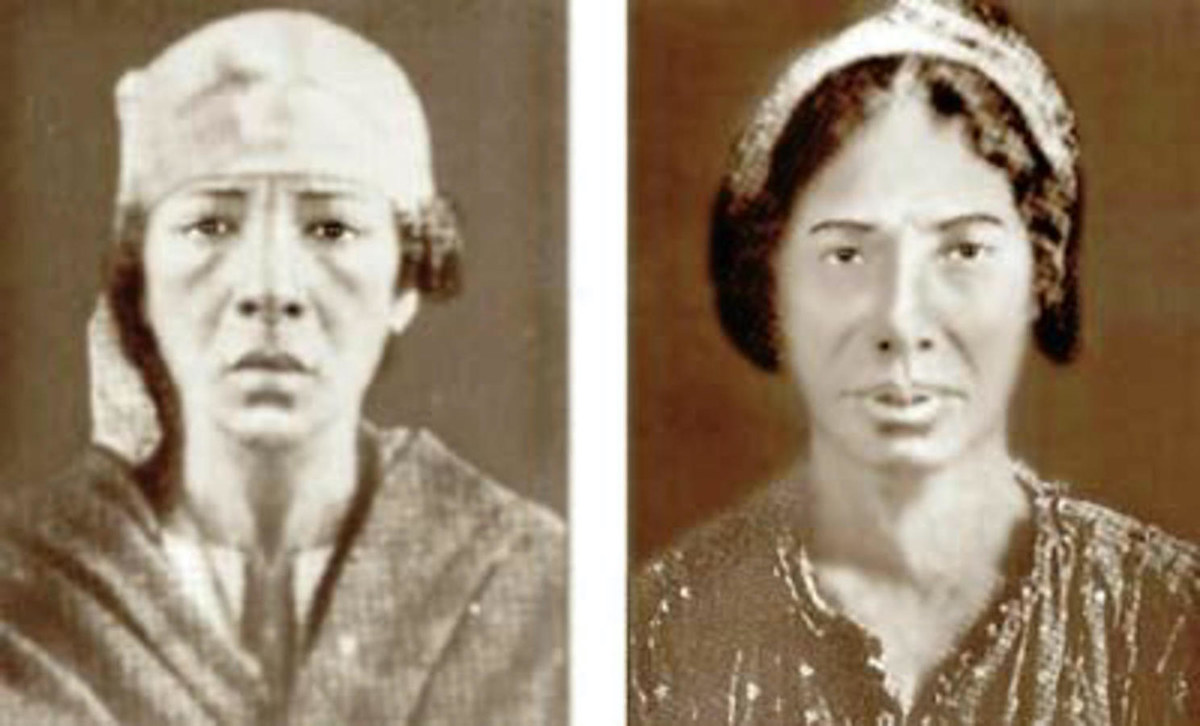DUBAI: Egyptian screenwriter Mariam Naoum has been sued three times for the films she has made. For her, that’s not a sore spot — it’s a badge of honor.
“It makes me stronger, actually,” she tells Arab News. “I don’t think, ‘Oh, I got sued. I have to be more careful.’ I think, ‘OK. I got sued. I must have tackled something that is bothering people. I must have embarrassed someone who needed to get embarrassed.’”
Now, Naoum is working with acclaimed Irish filmmaker Terry George on a new true-crime series about twin serial killers in Egypt. George, an award-winning writer and director, has worked on such iconic films as “In the Name of the Father” (1993), “The Boxer” (1997), and “Hotel Rwanda” (2004).
The endeavor will see Naoum tackle one of Egypt’s most famous real-life stories — that of Raya and Sakina, the serial-killer sisters who wreaked havoc on Alexandria in the early 1900s.

Naoum remains one of Egypt’s preeminent firebrand writers. (Supplied)
It’s a story that has been told many times in many different ways in Egypt, but two things will distinguish Naoum’s upcoming adaptation. First and foremost, it will be made not just for an Egyptian audience, but a global one, with a planned rollout on international streaming platforms.
The screenwriter is no stranger to the scene, in fact It’s been more than 10 years since Naoum first turned industry heads with “One-Zero,” and she remains one of Egypt’s preeminent firebrand writers, one whose work enjoys critical acclaim and enduring popularity by focusing on issues facing everyday people, especially women.
Naoum, however, doesn’t push hot-button issues in her work in order to draw controversy. She does so to embolden those without a voice, and hopefully lay the groundwork for change. When “One-Zero” came out in 2009, Naoum was initially taken back by the lawsuit she was hit with for the film, but quickly realized that it was not a sign that she had failed at her mission.
“When I got sued, I was really shaking at first, but then I discovered that very few were actually against it. I actually reached people as I wanted, and they understood what I was talking about. A lot of people were supporting me. Then, at the box office, ‘One-Zero’ did very, very well. People really loved it because it was talking about them. So I said, ‘OK, I will follow my instinct. I will always have people that are against me, but I will put it behind my back,’” says Naoum.
While Naoum hasn’t been sued in six years, she doesn’t see this as a sign that her work has mellowed. If anything, she says, Egypt has begun to get used to her way of storytelling, and trust her voice and compassion for everyday people.

Her work, including 2019’s “Between Two Seas,” is written as accessibly as possible, in part to bridge the divide in prosperity and eductation between Egypt’s social classes. (Supplied)
In one particular controversy in 2015 for her TV series “Under Control,” Naoum tackled substance abuse, something that was initially misunderstood by some viewers as an endorsement rather than a condemnation. As the series went on, however, the feedback began to change.
“And at the end, they were, like, thanking me because I made them think about this issue that people don't want to think about. Because of social standards in Egypt, people are really in total denial about what's happening to their kids. Something may be in the street, but it's in your house, but you don't know about it because you're putting your head in the sand. I had to fight these preconceptions and, in the end, I succeeded.”
Since Naoum is primarily focused on the issues that plague her society rather than pointing blame at anyone in particular, she often garners criticism from multiple sides, because everyone — from conservative to liberal — has truths they don’t want to face about themselves.
“Our society is very rich with characters and stories,” Naoum says. “And it is very controversial to dive into the fact that we have a lot of double standards in our society. So you have very traditional people that are doing things that we cannot imagine they would do, and you have people who you think are very liberal, but there are still very harmful or backward ideas inside their heads. We have all these differences and contradictions, but that gives us richness as characters. Even though it might be negative, it is richness nonetheless.”

Terry George is the award-winning writer and director who has worked on such classic films as “In the Name of the Father” (1993), “The Boxer” (1997), and “Hotel Rwanda” (2004). (AFP)
First and foremost though, Naoum writes with everyday people in mind, not only as her subjects but as her audience. Her work, including “Under Control” and 2019’s “Between Two Seas,” is written as accessibly as possible, in part to bridge the divide in prosperity and eductation between Egypt’s social classes.
“I want to help less-educated people feel that they, too, are part of society — that they are heard, that they are seen, and that we feel what they feel,” says Naoum.
If Naoum has evolved as a writer, it is in showing more compassion to her characters, especially the men.
“I think, with experience and maturity, I learned how not to pass judgment on characters,” she says. “Instead of hitting my head against a topic, I learned how to maneuver, without losing what I want to say or the stories I want to tell.”
To create something that can be watched by audiences across the world, Naoum is collaborating with George who has spent his entire career unafraid to talk about hot-button topics.

Understanding the layers to Raya and Sakina’s story has been another development of her own maturity. (Supplied)
“I started writing a Raya and Sakina story maybe three years ago, but then dropped it. Then this year I was contacted to co-write with Terry on the project. The universe seemed to make everything fall into place. When I spoke to Terry, I saw he had this new vision about how the story could be told, and I have been working with him to tackle it from different angles to add more layers to the subject than has been done before,” says Naoum.
Understanding the layers to Raya and Sakina’s story has been another development of her own maturity, as she understands that even those painted as evil by society actually have a more nuanced story that demands to be told.
“Once you have the experience, then you can you can dig in depth into all the components of these characters, and you can find a way to even look at these characters through a feminist lens. When I was young, it was a story about serial killers. Then when you have a deeper look, you start to see how they developed into what they became. No one is born as a killer. There was a journey that led to these murders. We are working on understanding what happened, and how Raya and Sakina became killers,” she explains.
For once, however, Naoum will be making something not just to hold a mirror back up to her own society. With “The Alexandria Killings,” as the show will be called, in what is planned to be a true-crime anthology series produced by Dubai-based company Yalla Yalla, she will have the opportunity to speak to the world about her home country.
“I will be working with Terry to help figure out what those misconceptions even are. And if foreigners are seeing us a certain way, maybe we can change this a bit. This is such a new experience for me. I'm looking forward for it,” she says. “It’s a huge challenge, but I think it's finally time to do it.”












